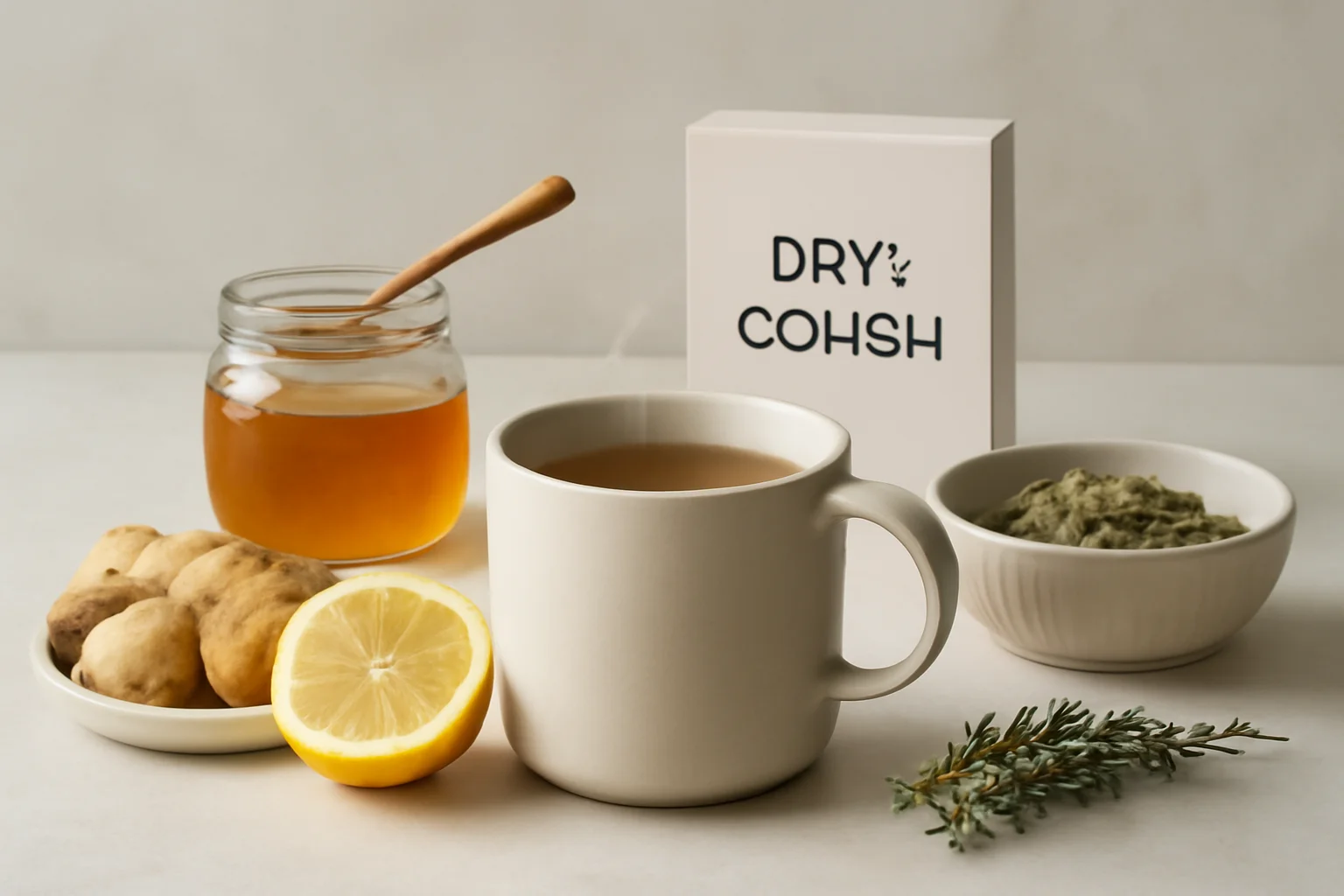
Treatment of Dry and Productive Cough with Home Remedies
The cough is a natural reflex that helps keep the airways clear and provides protection against pathogens and irritants. Coughing can present in different forms, including dry cough and productive cough. Each type has its own characteristics, causes, and treatment options.
Dry Cough: Causes and Symptoms
A dry cough is a type of cough where we cough due to irritation in the airways, but no mucus is produced. The causes of this type of cough can vary. One of the most common triggers is respiratory infections caused by viruses, such as the common cold or influenza. Additionally, allergic reactions to pollen, pet dander, or other allergens can lead to a dry cough.
Another common cause of dry cough is the use of air conditioning or heating systems, which can dry out the air and irritate the airways. Smoking also plays a significant role in the development of dry cough, as cigarette smoke irritates the respiratory system. Furthermore, environmental pollution, such as dust, contaminated air, and chemicals, can contribute to the worsening of the problem.
Symptoms of dry cough include sore throat, a tickling sensation in the throat and airways, and coughing fits. These symptoms can be bothersome, especially at night when coughing can disrupt sleep. Treatment for dry cough typically focuses on eliminating the underlying cause, and medications such as cough suppressants or natural remedies like honey and ginger can help alleviate the symptoms.
Productive Cough: Characteristics and Treatment Options
A productive cough, also known as a wet cough, involves the expulsion of mucus accumulated in the airways. This type of cough usually develops as a result of respiratory infections, such as bronchitis, colds, or pneumonia. The characteristic of a productive cough is that mucus is expelled from the lungs during coughing, which helps keep the airways clear.
Causes of productive cough include bacterial and viral infections, as well as environmental factors such as smoking, air pollution, and dry air. A productive cough can be particularly uncomfortable, as the buildup of mucus makes breathing difficult and is often accompanied by fever, fatigue, and general malaise.
Treatment for productive cough generally involves the use of expectorants and mucolytics, which help clear mucus from the airways. It is important for the body to remain adequately hydrated, as fluid intake helps thin mucus and makes it easier to expel. Additionally, steam inhalation or nebulization treatments can be effective, as they help hydrate the airways and reduce irritation.
How to Distinguish Between Dry and Productive Cough?
Distinguishing between dry and productive cough is crucial for appropriate treatment. The first step is to consider the characteristics of the cough. A dry cough is typically sudden, painful, and does not produce mucus, while a productive cough is characterized by the expulsion of mucus during coughing.
The underlying causes can also help with differentiation. If the cough is due to allergic reactions, airway irritation, or dry air, it is more likely to be a dry cough. In contrast, if the cough is a result of a cold, influenza, or other respiratory infections, and mucus is present, it is likely a productive cough.
The duration of the cough is also an important factor. A dry cough usually lasts for a shorter period, while a productive cough can persist for weeks, especially if the infection is not treated properly. Accompanying symptoms such as fever, sore throat, and fatigue also assist in determining the underlying causes.
It is important to consult a doctor if the cough persists or worsens, as they can provide an accurate diagnosis and treatment.
What Home Remedies Can Help Alleviate Cough?
There are several home remedies that can help alleviate coughing symptoms and improve well-being. These simple methods are often effective and can easily be incorporated into daily routines.
One of the most effective home remedies is the use of honey. Honey is a natural cough suppressant that can help reduce throat irritation. Mix a spoonful of honey in warm water or lemon tea and consume it daily. This not only alleviates coughing but also hydrates the throat.
Steam inhalation can also be beneficial, especially for productive cough. Steam enters the airways, helps thin mucus, and makes breathing easier. To do this, boil water, then lean over the steam and cover your head with a towel. You can perform steam inhalation several times a day.
Proper hydration is also crucial. Drink plenty of fluids, such as water, fruit juices, and soups. This helps thin mucus and reduce coughing. Additionally, gargling with saltwater can help relieve throat irritation.
Remember that if the cough persists or worsens, you should definitely see a doctor who can provide the correct diagnosis and treatment.
**Warning:** This article does not constitute medical advice. Always consult a doctor for health problems and follow their guidance.

